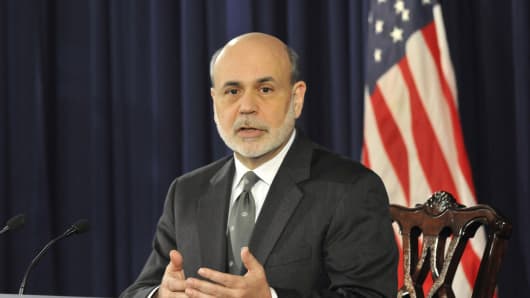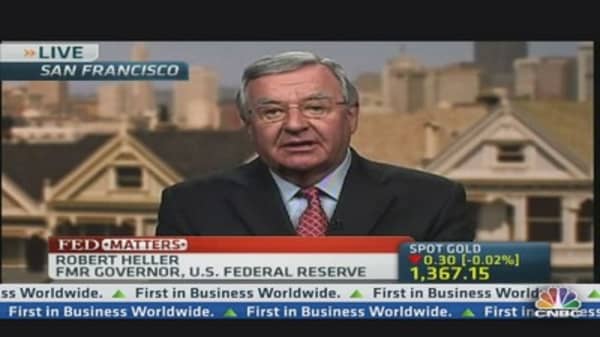Janet Yellen is the top contender for the job. The Fed vice chair has been an advocate of Bernanke's policies—including successive rounds of quantitative easing. Her elevation would ensure a smooth transition, avoiding any fears of an abrupt change of policy.
Yellen would also be the first woman nominated to the Fed's top job, which likely would help disarm some senators concerned about her reputation as a "dove" on inflation. She's also older, 66, than the other likely candidates for the job, which also may work in her favor as she's likely to be a single-term chair. I'd give her about 1 in 3 odds.
(Read More: Former Fed Governor Names Yellen as Best Bernanke Successor)
Christina Romer is a professor at the University of California, Berkley. She was one of the principal architects of the Obama administration's economic recovery plan and chairwoman of the White House's Council of Economic Advisers.
The stimulus plan advocated by Romer was much larger than what was actually passed into law—which may mean that her nomination would spark opposition by Republican lawmakers. On the other hand, she's written that tax increases can hurt economic growth, which could make her appealing to anti-tax advocates. Odds: 1 in 7.
Lawrence Summers is well respected for his intellectual firepower in Washington, but also regarded as "prickly." He was Obama's first National Economic Council director and Treasury secretary under Bill Clinton. He opposed Romer's original stimulus plan as too large but more recently said that "countries regarded as havens that can borrow long term at a very low cost should be rushing to take advantage of the opportunity."
This stance in favor of more long-term debt may give rise to opposition from budget balancers on Capitol Hill. And then there's that whole women in science controversy left over from his tenure at Harvard. Odds: 1 in 6
Roger Ferguson is the chief executive officer of TIAA-CREF, which manages more than $480 billion of retirement assets for many educational, cultural and health care organizations. He was vice chairman of the Fed from 1999 to 2006.
His private-sector experience could be a plus for his confirmation chances, although some progressives may balk at putting a financial services executive in charge of the Fed. His role leading Fed bank supervision in the years preceding the financial crisis could also stir controversy from those critical of regulators for going too easy on banks. Odds: 1 in 6.
(Watch: Roger Ferguson on the markets)






